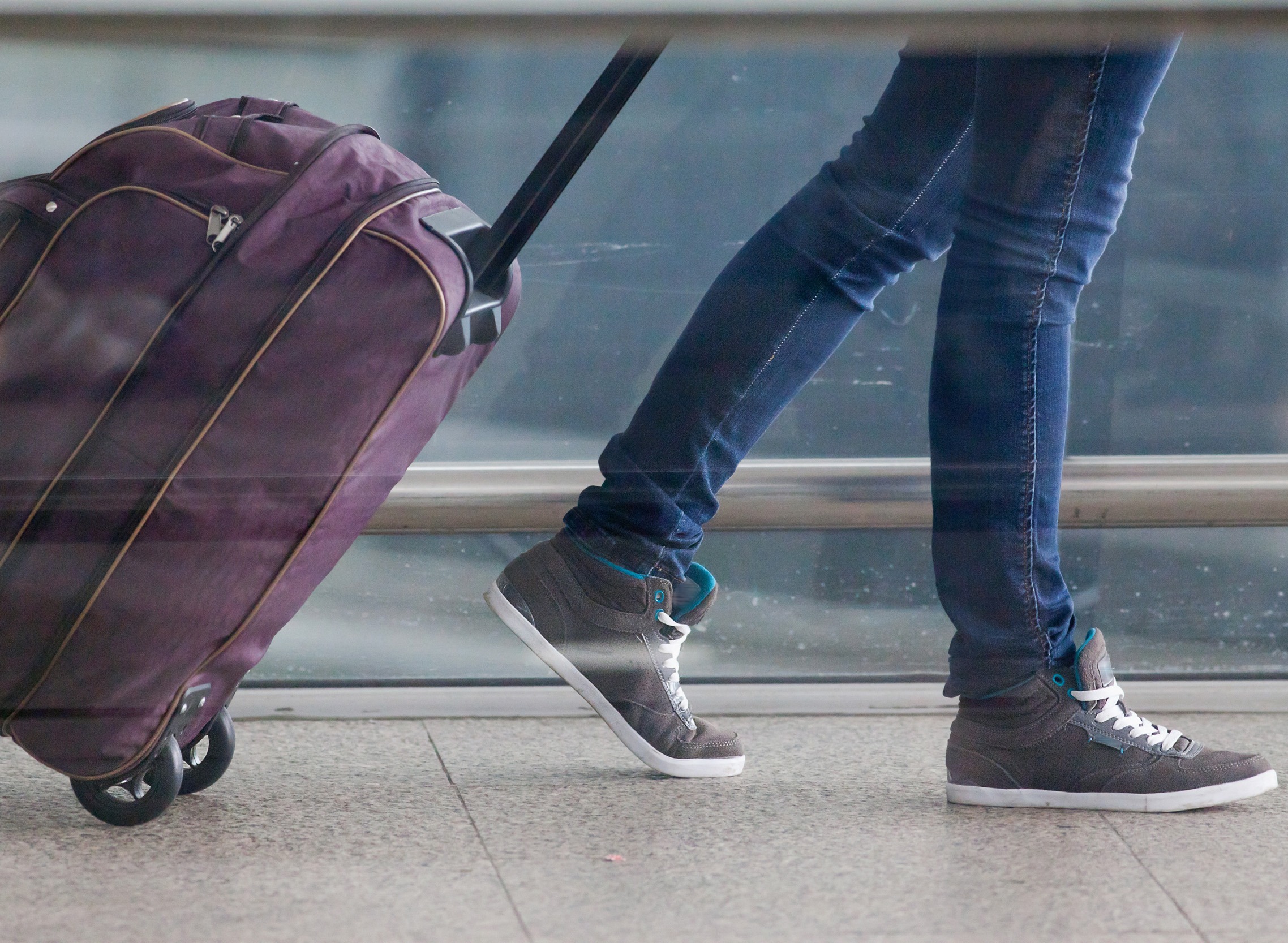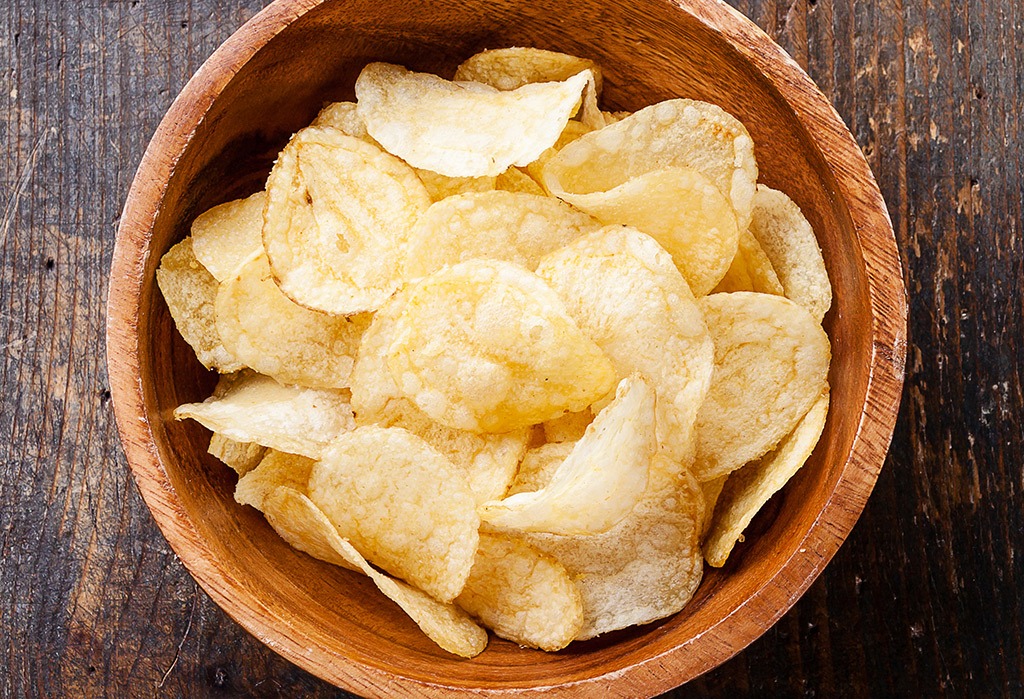15 Habits That Will Make You Fatter In The Future

Anyone who doesn't live under a rock knows that the world is always changing. You'd be hard-pressed to find a city street, computer, or car that looks the same as it did 15 years ago. And people are no different.
Sure, we all go through the normal aging process (though plenty of us live in denial of this reality), and some people's waistlines are more prone to change — and, er, expand — than others. Simply put, you may not have belly fat or love handles today, but that doesn't mean your waistline will remain trim forver.
But thankfully, most weight gain won't happen overnight. Just like cell phone and computer advances, there are almost always signs that changes are coming down the pipeline. From your hobbies and your commute to your family and your sleeping habits, there are a number of indicators that your slim waistline may not stick around for life — and that's actually great news. The more aware you are of these signs, the easier it will be to ward off dreaded weight gain before it's too late.
Read on to find out what these habits are, and for even more ways to lose weight and stay trim into your golden years, check out these 50 Ways to Age in Reverse!
You Travel Often For Work

While the occasional week-long vacay won't wreak havoc on your belly, if you're constantly hitting the road for business or pleasure—or plan to retire and travel the world—you may need to pack some larger pants. "Traveling can throw your body off balance, disrupting circadian rhythms which can negatively affect gut health and set you up for potential weight gain," says Cassie Bjork, RD, LD of Healthy Simple Life. "There's also newer research about how jet lag can negatively impact gut microbiome and cause weight gain. Not to mention, when you're traveling, you're potentially eating out more, drinking more alcohol, and exercising less, which can lead to increased insulin and cortisol levels, and subsequent weight gain." If trading in your passport for less of a paunch isn't an option (and it shouldn't have to be!), Bjork suggests keeping levels of beneficial bacteria plentiful with a daily probiotic supplement. Alternatively, you can incorporate probiotic-rich and fermented foods into your diet. We like Greek yogurt, kimchi, kombucha, kefir, and sauerkraut.
You Forget to Eat

"If you often forget to eat or tend to skip meals, this might be a sign you may have issues with weight maintenance later in life," explains registered dietitian Isabel Smith. "This is especially true for women. During and after menopause, estrogen production slows which affect hormones related to blood sugar. That said, blood sugar maintenance—which relies heavily on a smart and consistent eating schedule— is a key factor in weight maintenance. Getting in the habit of eating something nutritious (like these high protein snacks) every four hours now, will make it easier to stick to a regular regimen when your body needs it the most and is most susceptible to weight gain.
You Skimp on Water

You know you can't live without it, but did you know what simply sipping more water can help keep you lean as you age? It's true—and there are a few reasons why. For one, drinking water throughout the day, especially before a meal, fills up your stomach, which helps you consume less when you sit down to eat and lessens the urge to snack, too. And studies show, when you sub in water for juice and soda, you'll weigh less over time. One International Journal of Obesity report showed that daily water intake was inversely associated with weight gain over a 20-year period. Substitution of sugar-sweetened beverages and fruit juices by other beverages like coffee, tea, low-fat and whole milk were also shown to be significantly and inversely associated with weight gain. The takeaway here is a simple one: Ditch the soda and sweetened beverages and stick to H20, detox, water, milk, and unsweetened teas and coffee.
You Have a High-Stress Career

If you get stressed out just thinking about heading to the office, it's a pretty good sign you'll slowly but surely pack on the pounds—unless you decide to switch careers, of course. Stress increases levels of the hormone, cortisol, which has been shown up increase fat storage and appetite. It also inhibits the use of glucose by the body's cells, which can cause muscle proteins to break down, decreasing your metabolism-revving lean body mass. If ditching your job isn't on the table, at least consider talking to your boss about taking some responsibilities off of your plate. Also, make stress-reducing part of your daily grind. That might mean making time for a yoga or meditation class each day, sipping one of these teas that combat stress, or simply taking a 15-minute walk outside during your afternoon coffee break. The bottom line: Find something that works for you and stick with it.
You Don't Make Sleep a Priority

Do you regularly stay up late watching Netflix or boozing with your buddies? The lack of sleep will eventually catch up to you—even if you aren't dragging your feet the next day. "Skimping on sleep can negatively influence long-term weight management," warns Smith. "Research shows that not getting enough sleep can negatively affect hunger hormones, increasing appetite and cravings for sugar- and fat-laden fare. Sleep is showing up again and again as more crucial to weight maintenance than we might have once thought." Torey Armul RD, spokesperson for the Academy of Nutrition and Dietetics, agrees, adding, "it won't definitively make you overweight, but it may influence your metabolism over time." Aim for seven to eight hours of shut-eye per evening to keep your appetite in check and your metabolism humming.
You're Tired Even When You're Fully Rested

If you regularly log a full night's rest but still wake up feeling groggy, it may indicate that your body isn't producing enough of the thyroid hormone. A primary side effect of hypothyroidism—aside from sleepiness? Weight gain. If you always feel sleepy or have a family history of thyroid disease check in with your doc so he can test you for the condition and start you on a treatment plan.
Your Parents Are Overweight

The apple doesn't fall far from the tree, and when the apples are, well, obtusely round, it can increase the odds you'll fill out that way, too—even if you're slim now. "Genetics plays a strong role in aging, body shape, and fat distribution, " explains Armul. "If your parents' health doesn't bode well for you, know that your own behaviors and lifestyle choices are even more important." Make exercise, eating well, and staying active a priority. And while you're at it, be sure to avoid these 31 Things that Mess Up Your Metabolism!
You Hate Working Out

Though diet likely has more of an impact on your weight than exercise, if you don't exercise, you could be setting yourself up for weight gain later in life. "Your muscle and lean body mass affect your metabolic rate or the number of calories your body burns at rest. If you don't maintain muscle or lean body mass with exercise and strength training, you may notice a slowing metabolism as you age," warns Armul. Pair that with the fact that once you hit 50, you've got about 20 percent less muscle mass than you did when you were 20 and you've got yourself a recipe for weight gain. Starting a well-structured weight training routine now can help you increase your muscle mass help you ward off weight gain as you age. Check out these Best Exercises to Blast Belly Fat for some fitspiration.
Your Kitchen is Cluttered

According to a new Cornell study, a woman's weight can be estimated simply by taking a photo of her kitchen counter. After analyzing photos of 200 kitchens, he found that women who have soda sitting on their countertops weigh an average of 26 pounds more while those who have cookies on their counters weigh about 8 pounds more. The biggest surprise: Keeping cereal on your counter leads to an additional 20 pounds of body weight. The lesson here is clear. Clean empty calories off your countertops to ward off weight gain. Though you may not be packing on any pounds now, your kitchen habits catch up to you later down the line. And for even more creative weight loss hacks, check out these [0 Weight Loss Tricks You Haven't Tried!
You Live Near Fast Food Restaurants

Did you know that one of the strongest influences on fast food consumption is ease of access? Basically, if we see it and can easily get it, we will eat it. For pregnant women, having a fast food restaurant within 0.50 miles of their home increases the probability of gaining over 44 pounds during pregnancy by 2.5 percent. (Experts typically recommend that women with a healthy BMI gain no more than 25 to 35 pounds after becoming pregnant.) And a University of Leicester study found that those there are more cases of diabetes among those who live within a quarter mile of fast food restaurants, indicating that people eating the grub likely have a higher risk of obesity. If you're already settled in an area where burgers and fries are plentiful, keep healthy, grab-and-go snacks in your car or bag. If you're prepared with your own healthy fare, you'll be less apt to give in to temptation when your tummy starts to rumble—which means you'll be more likely to stay trim! These 25 Eat This!-Approved Snacks are all solid options.
You Watch A Lot of TV

You may be pretty healthy now, but if you're a sucker for binge-watching your favorite TV show, you might not stay fit for long. According to a 2015 study published in the journal Diabetologia, for each hour participants spent watching TV a day, their risk of developing type 2 diabetes increased by 3.4 percent. Experts believe this activity is so disasterous for our health by increasing time spent being sedentary, as well as increasing our exposure to unhealthy food advertisements. According to Lilian Cheung, lecturer and director, health promotion and communication for the Department of Nutrition at Harvard T.H. Chan School of Public Health in an interview with NPR, seemingly innocuous exposure to food advertisements could promote poor eating choices and lead to weight gain down the road.
You're Never Home

These days it seems that everyone is crazy busy. Sound like you? If you're always on the go that likely means you're dining out on the reg—which can spell major trouble for your gut. Portion sizes (and subsequent calorie counts) are far bigger than they were thirty years ago, and research shows that people will often eat whatever's on their plates—even if they're already full. While you may not notice your pants getting tighter now, if you continue eating the majority of your meals away from home, you'll likely have a difficult time maintaining your current weight. Your best bet? Aim to consume no more than four meals per week away from home—and rely on these 25 Tips for Meal Prep Sunday to help you make healthy, portable noms for the week ahead.
You've Got a Salt Tooth

While most people blame sugar for their ever-expanding waistlines, salt may be just as bad. Yes, that's right, even if you steer clear of cookies and soda, the pounds may still creep up on you if you nosh on things like fries and chips. In fact, for every extra gram of salt you eat in a day (that's ⅕ of a teaspoon, or about what you'll find in one of those tiny salt packets) your risk of obesity climbs by 25 percent, according to a study at Queen Mary University in London. Most of the salt we eat comes not from our own salt shaker, but from restaurants and packaged foods, so the best way to seize control is to roll up your sleeves and cook more at home. Instead of sprinkling on salt, stick to flavorful herbs and spices like pepper, rosemary, oregano, and cayenne, one of these 30 Best Fat-Burning Foods.
You Commute By Car

If you live in the suburbs odds are good you commute to work every day by car, which is no bueno for your belly. According to a 2014 Preventative Medicine review of 10 studies, there is a significant association between time and distance traveled in a car and weight status. To keep those extra pounds away, cycle to the office once a week or park your car further away from the entrance. Or better yet, park your car about a half-hour away from your office and walk the rest of the way to your destination. The majority of people who have lost weight and kept it off report walking for an hour a day so it's likely the same strategy could help ward off weight gain, too.
You Like to Dress Up

Those heels and dresses may make you feel like more of a professional, but wearing jeans to the office is far better for your belly. University of Wisconsin researchers found that people who wore denim to work took almost 500 more steps (about a quarter mile) throughout the day than they did on days when they wore more formal attire. Over time, those additional step can help you maintain your lean physique. For more simple ways to stay lean for life, check out these 30 Foods That Melt Love Handles.








